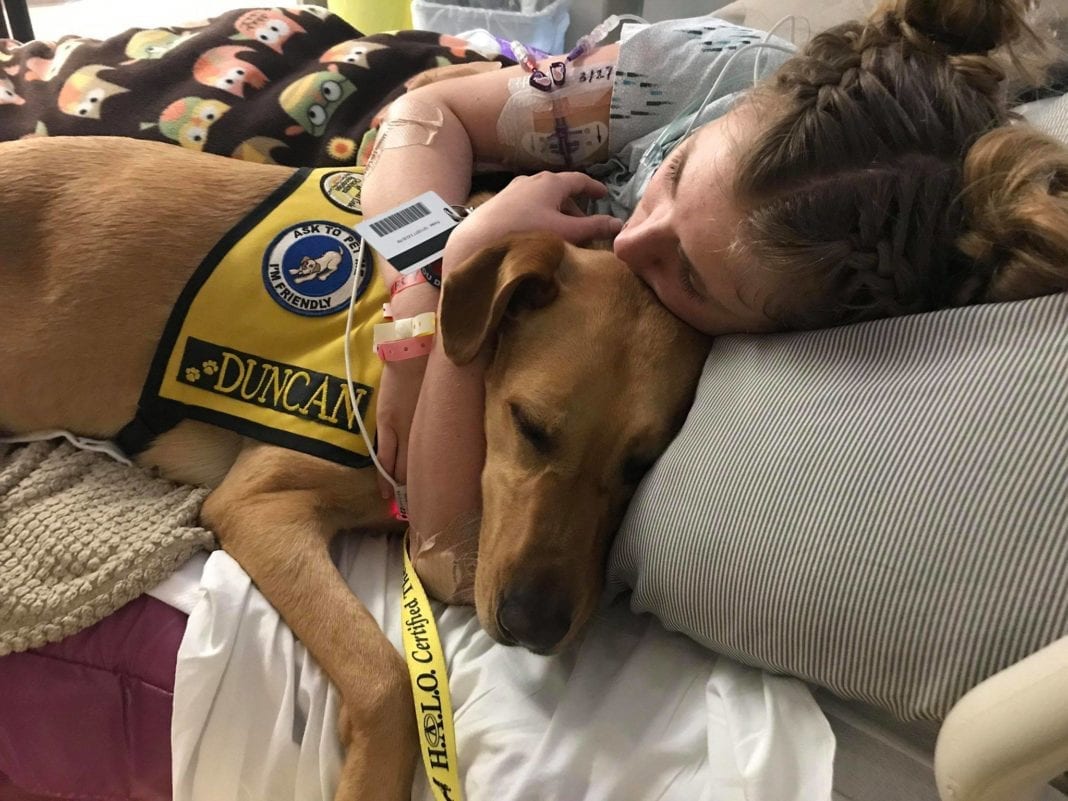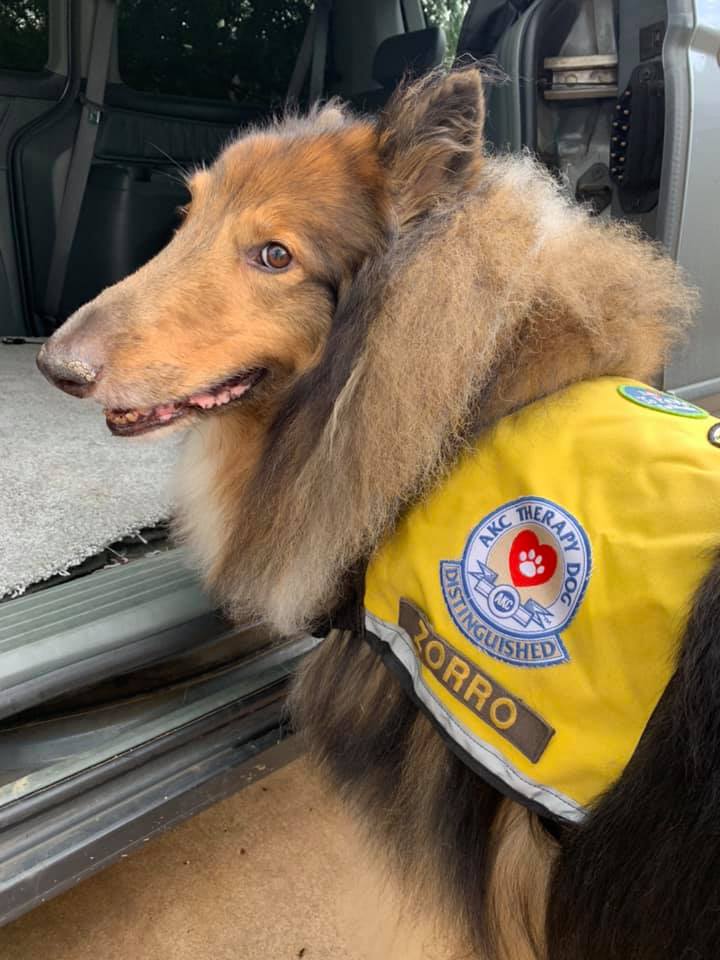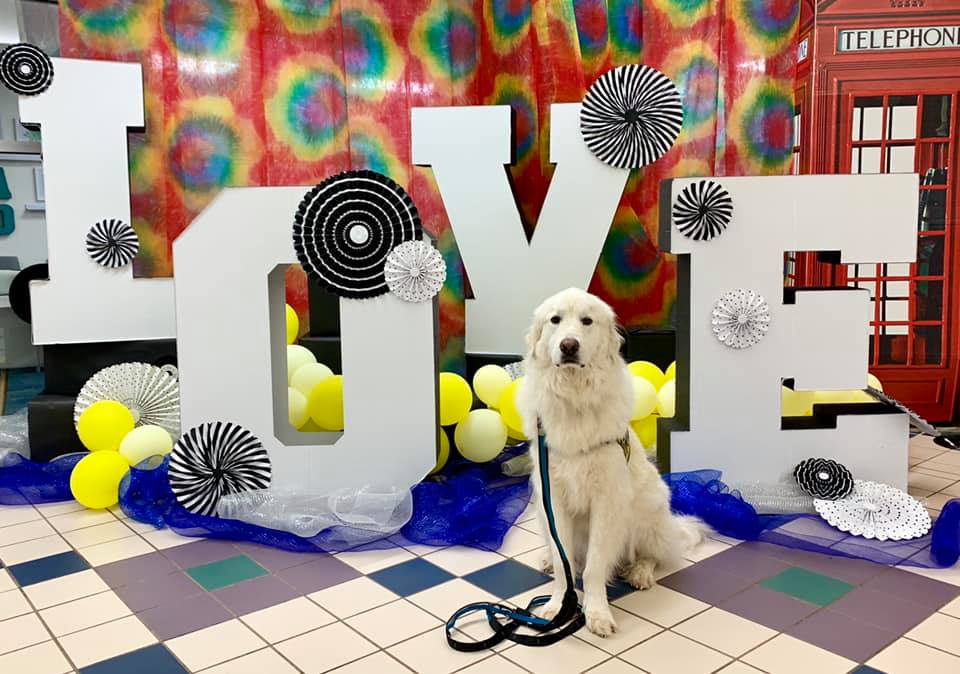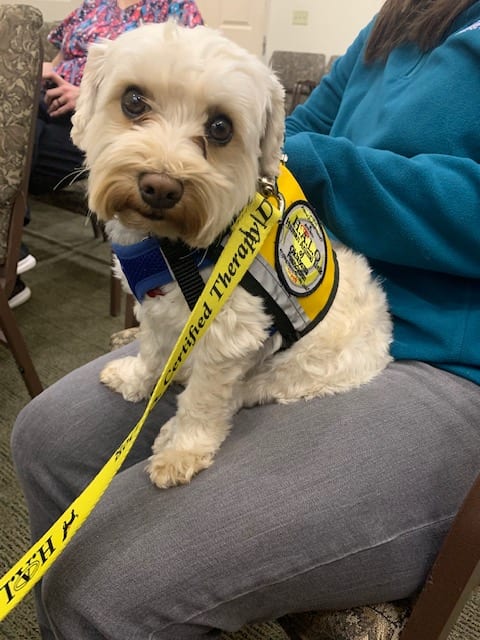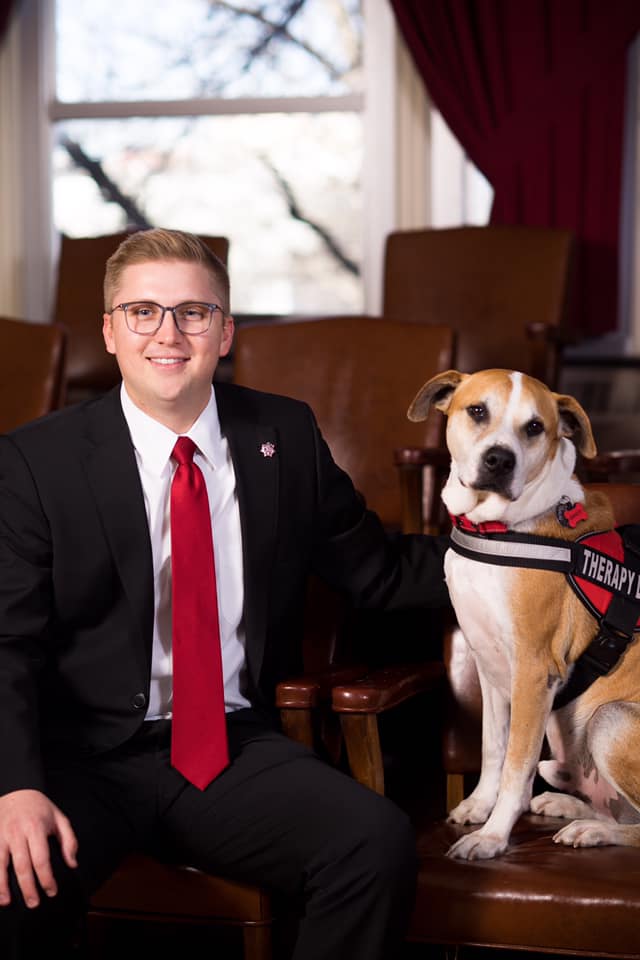Pet owners already know that a loving animal can make a bad day better. There are also organizations that foster this type of bond and help people deal with life’s ups and downs.
In 2001, special education teacher Terri Smith founded the Human Animal Link of Oklahoma Foundation because she saw that students diagnosed with a variety of emotional disturbances and oppositional disorders needed to learn alternative ways to function in society.
The Norman-based group, which uses the acronym HALO, certifies therapy dogs, and its website provides the state of Oklahoma’s classification of a therapy animal – one trained to provide affection and comfort to people with learning disabilities as well as those in hospitals, retirement homes, nursing homes, schools, hospices and disaster areas.
Smith, the group’s president and CEO, began her journey of animal-assisted therapy with Shana, her German shepherd, who was on staff at Yukon Public Schools as a student behavioral assistance therapy dog until her retirement in 2005. Shana spent 15 years with Smith as an emotional and physical resource for special education students.
Smith says therapy animals, which can come in all shapes, sizes, breeds and species, also contribute to therapeutic and rehabilitative therapies.
“Visiting dogs bring comfort without words, which, in and of the act itself, speaks volumes,” she says. “A sweet interaction takes place between the human and the animal. Visiting animals can demonstrate healthy actions, responding appropriately to stimulus rather than quick [and] damaging reactive behaviors.”
Whether visiting schools, nursing homes or other institutions, therapy animals offer “moments of simple joy and peace, reaching into the minds and hearts to communicate with people who just may have shut out the human factor,” Smith says. “Promoting literacy and cognition, social interaction, diffusing states of anxiety and depression – all are made better with a well-trained animal and a stable, compassionate and empathetic handler. Our young, our teens, our adults and our elderly are all served.”
She adds that almost any organization or institution can benefit from such therapy.
“Any profession that deals with individuals undergoing trauma or crisis, no matter the form it may take, should take the responsibility to research and be open to any viable resource,” Smith says. “Animals have been of great assistance in aiding those wishing to join, rather than retreat from, society.”
For instance, a fluffy dog named Capt. Boo has helped children get through their testimony regarding abuse cases at the Tulsa County Courthouse. The bichon frise, the courthouse’s first therapy dog, retired in January after 10 years of service; three other dogs remain part of its “family” of helpers.
For information about becoming a volunteer with HALO or certifying a therapy animal, go to yourhalofoundation.org.






















